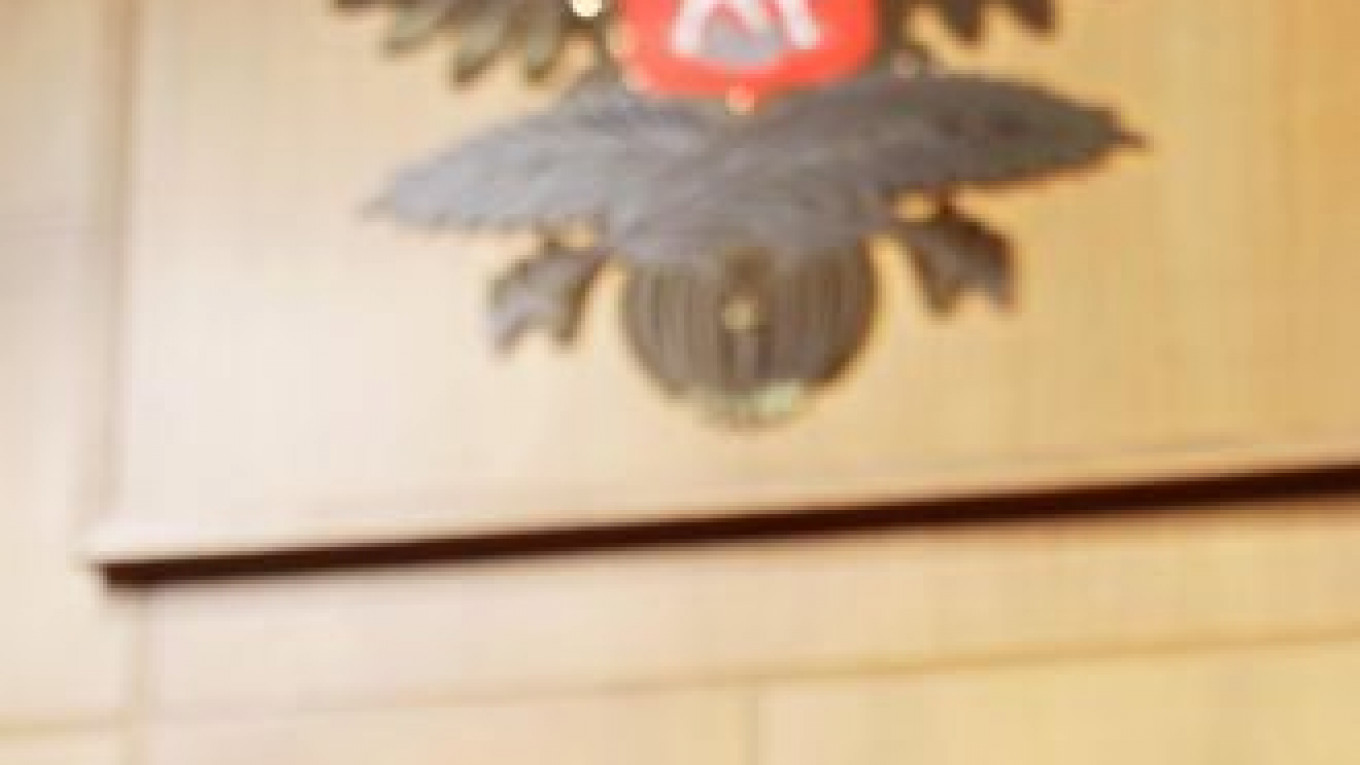A key ingredient to improving relations with the West will be the creation of a common European missile shield with NATO, Foreign Minister Sergei Lavrov said Thursday, further raising the stakes in the reset of Russian-U.S. relations.
A unique chance of a finally putting aside the Cold War legacy will be missed if there is no "honest and frank" dialogue with NATO, Lavrov told reporters at his annual news conference.
Officials with the U.S.-led defense alliance and President Dmitry Medvedev agreed at a summit in Lisbon last November to develop a joint defense system to protect Europe from missile attacks from countries such as Iran.
Analysts have warned that negotiations about the shield will be difficult because of Moscow's insistence on equal participation in the shield's command and control systems. Prime Minister Vladimir Putin has warned that if Moscow's proposals on the system are not met, Russia is ready to begin a new arms race.
The next round of talks is slanted for Jan. 26 at the NATO-Russia Council in Brussels.
Lavrov said success over missiles was much more important than solving the Transdnestr conflict, turning the tables on an earlier European Union initiative.
German Chancellor Angela Merkel promised Medvedev last year to support his desire to form a joint security committee with the EU but said the Kremlin should prove its sincerity by tackling Transdnestr, where Moscow-backed separatists control a sliver of land between Moldova and Ukraine.
"I am convinced that creating a common missile shield is the real and more important test for the sincerity of statements that security is indivisible," Lavrov said.
Lavrov also dampened hopes about new disarmament talks with the United States by saying the New START nuclear reduction treaty must first be fulfilled and any future negotiations must address issues like non-nuclear strategic weapons and a ban on developing weapons in space.
The landmark New START treaty between Washington and Moscow was ratified by the U.S. Senate last month, and Russian lawmakers have promised ratification in the State Duma and the Federation Council by the end of this month.
But Duma deputies set new fulfillment conditions in a bill drafted Wednesday, after bristling about a last-minute Senate resolution that said the treaty should not contain the U.S. anti-missile program's development.
Lavrov also reiterated Moscow's conditions for cuts in shorter-range, or tactical nuclear warheads, namely that the United States withdraw its weapons in Europe and that other nuclear powers are included.
But he was adamant that U.S.-Russian relations were improving. "Today there's more uniting us and the United States than dividing us," he said, "and let's hope that reality won't become victim of short-term political maneuvering."
He also insisted that Moscow no longer saw NATO as a threat to its security, saying the country's military doctrine does not name the alliance itself as a threat, but rather its eastward expansion.
A Message from The Moscow Times:
Dear readers,
We are facing unprecedented challenges. Russia's Prosecutor General's Office has designated The Moscow Times as an "undesirable" organization, criminalizing our work and putting our staff at risk of prosecution. This follows our earlier unjust labeling as a "foreign agent."
These actions are direct attempts to silence independent journalism in Russia. The authorities claim our work "discredits the decisions of the Russian leadership." We see things differently: we strive to provide accurate, unbiased reporting on Russia.
We, the journalists of The Moscow Times, refuse to be silenced. But to continue our work, we need your help.
Your support, no matter how small, makes a world of difference. If you can, please support us monthly starting from just $2. It's quick to set up, and every contribution makes a significant impact.
By supporting The Moscow Times, you're defending open, independent journalism in the face of repression. Thank you for standing with us.
Remind me later.







